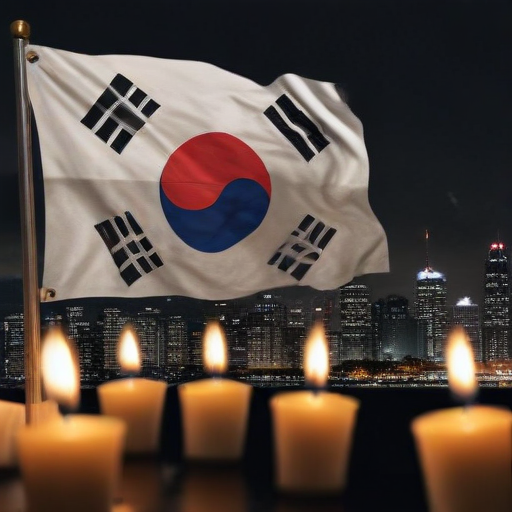In a dramatic sequence of events that unfolded over six hours, South Korea faced a potential shift in governance as President Yoon Suk Yeol announced martial law aimed at counteracting supposed “anti-state” forces sympathetic to North Korea. The announcement, which took place late Tuesday night, shocked citizens and ignited immediate protests outside the National Assembly in Seoul.
Nineteen-year-old student Hwang expressed disbelief upon witnessing Yoon’s address. He joined a growing crowd of protesters, determined to voice opposition against what many viewed as an alarming move reminiscent of South Korea’s past military rule, having only transitioned to democracy in 1987. The atmosphere transformed quickly from disbelief to unrest, with thousands gathering outside the National Assembly, chanting against martial law as police rigidly secured the area.
The chaos intensified when opposition leader Lee Jae-myung urged citizens to mobilize and block the martial law enforcement. Tensions escalated with protesters briefly clashing with military units, as individuals took bold actions, including lying under vehicles to obstruct military movements. Despite the turmoil, ordinary life continued elsewhere in Seoul, reflecting a striking contrast to the chaotic scenes unfolding near the assembly.
Equipped with news of special forces being deployed and intended media restrictions, protesters and lawmakers alike rallied together, exhibiting the resilience and determination characteristic of South Korean democracy. Lawmakers faced daunting barriers as they maneuvered past soldiers to reenter the assembly and vote against the martial law order. They successfully blocked the president’s declaration within just two hours of its announcement, voting unanimously to lift it.
Through this tumultuous night, citizens displayed tenacity in protecting their democratic principles, signaling a strong commitment to remaining vigilant against any threats to their freedoms. The swift response of the lawmakers and the solidarity of the public ultimately led to a peaceful resolution, demonstrating the strength of democratic governance in South Korea.
This incident underscores the intricate balance between political authority and citizen engagement, serving as a reminder of the importance of active participation in democracy. It highlights the ability of citizens to stand against authoritarian measures and advocate for their rights, fostering hope for a robust future in South Korean politics.
In summary, what transpired was not only a moment of fear but also a testament to the resilience of South Korea’s democratic values, leaving citizens hopeful that their collective voice can effectively safeguard their freedoms in the face of challenges.
